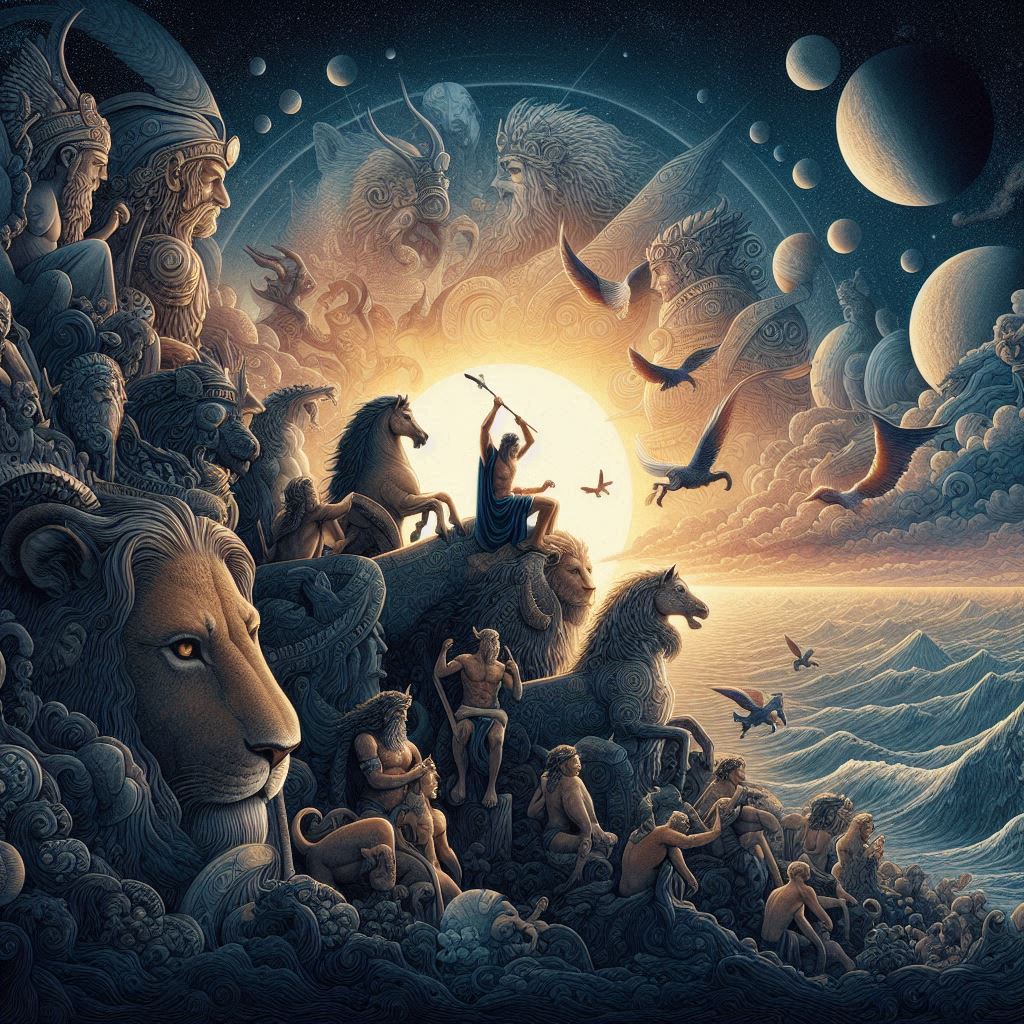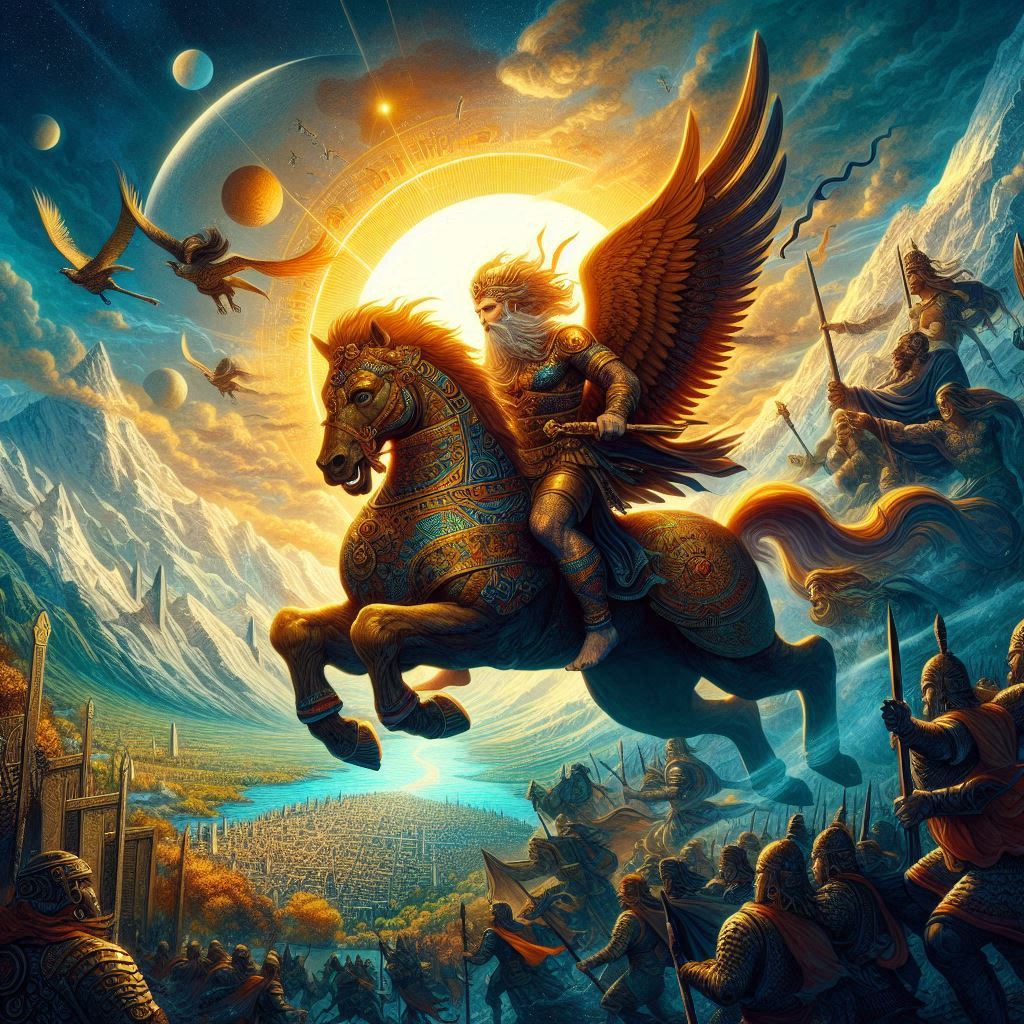The Epic of Gilgamesh: A Timeless Journey Through Humanity
The Epic of Gilgamesh: A Journey Through Time and Humanity
The Epic of Gilgamesh stands as one of the oldest known pieces of literature in human history. Originating from ancient Mesopotamia, this remarkable story has not only survived the test of time but also continues to captivate and inspire readers worldwide. Its themes of friendship, mortality, and the quest for meaning resonate deeply, making it a timeless narrative that transcends cultures and eras.
Origins and Historical Context
The Epic of Gilgamesh is a series of Sumerian poems that were later combined into a single narrative in Akkadian, the language of ancient Mesopotamia. The story dates back to approximately 2100 BCE, with the most complete version found in the library of Ashurbanipal, the last great king of the Assyrian Empire, around the 7th century BCE. The epic centers around the historical figure of Gilgamesh, the King of Uruk, a city-state in ancient Sumer. Although Gilgamesh likely existed as a real ruler, his portrayal in the epic blends history with myth, presenting him as a demigod with extraordinary strength and courage.

The Plot:
A Hero's Journey The epic begins with Gilgamesh as a tyrannical and arrogant king, whose subjects pray for relief from his oppressive rule. In response, the gods create Enkidu, a wild man who initially lives among animals. Enkidu's eventual encounter with Gilgamesh leads to a profound friendship that transforms both characters. Together, Gilgamesh and Enkidu embark on a series of adventures, including the defeat of the monstrous Humbaba in the Cedar Forest and the slaying of the Bull of Heaven, sent by the goddess Ishtar. However, their defiance of the gods brings dire consequences. Enkidu falls ill and dies, plunging Gilgamesh into a deep existential crisis.
Themes of Mortality and the Quest for Immortality
Enkidu's death forces Gilgamesh to confront his own mortality. Stricken with grief and fear, he embarks on a quest to find the secret of eternal life. This journey leads him to Utnapishtim, a survivor of a great flood who was granted immortality by the gods. Utnapishtim recounts the story of the flood and ultimately reveals to Gilgamesh that immortality is reserved for the gods. Humans must accept their mortal fate. Though Gilgamesh fails to attain eternal life, he gains wisdom and returns to Uruk with a renewed perspective on his role as king and the legacy he will leave behind.
Significance and Legacy
The Epic of Gilgamesh is much more than an ancient tale; it is a profound exploration of the human condition. Its themes of friendship, the struggle with mortality, and the search for meaning are universal and timeless. The epic also offers a glimpse into the beliefs, values, and daily life of ancient Mesopotamian civilization. Literary scholars and historians regard the Epic of Gilgamesh as a precursor to later epic traditions, including Homer's "Iliad" and "Odyssey." Its influence extends to modern literature, with echoes of Gilgamesh's journey found in contemporary narratives of heroism and personal transformation.

Conclusion
The Epic of Gilgamesh remains a powerful testament to humanity's enduring quest for understanding and meaning. Its rich narrative and profound themes continue to inspire and challenge readers, reminding us of our shared heritage and the timeless nature of our struggles and aspirations. Whether you are a student of literature, history, or simply a lover of great stories, the Epic of Gilgamesh offers a journey through time that is both enlightening and deeply moving.
Recent Posts
-
Sustainable Splendor: The Eco-Friendly Soul of Handcrafted Art
In an era of fast fashion and mass-produced home decor, the environmental cost of our "stuff" has ne …31st Dec 2025 -
The Art of Diplomacy: Why Handcrafted Heritage is the Language of Dubai’s Protocol
In the world of international relations and government protocol, a gift is never "just a gift." It i …31st Dec 2025 -
The Psychology of Appreciation: Using Bespoke Art to Retain Top Talent in Dubai
In the high-speed corporate environment of Dubai, where the global hunt for talent is relentless, a …31st Dec 2025



